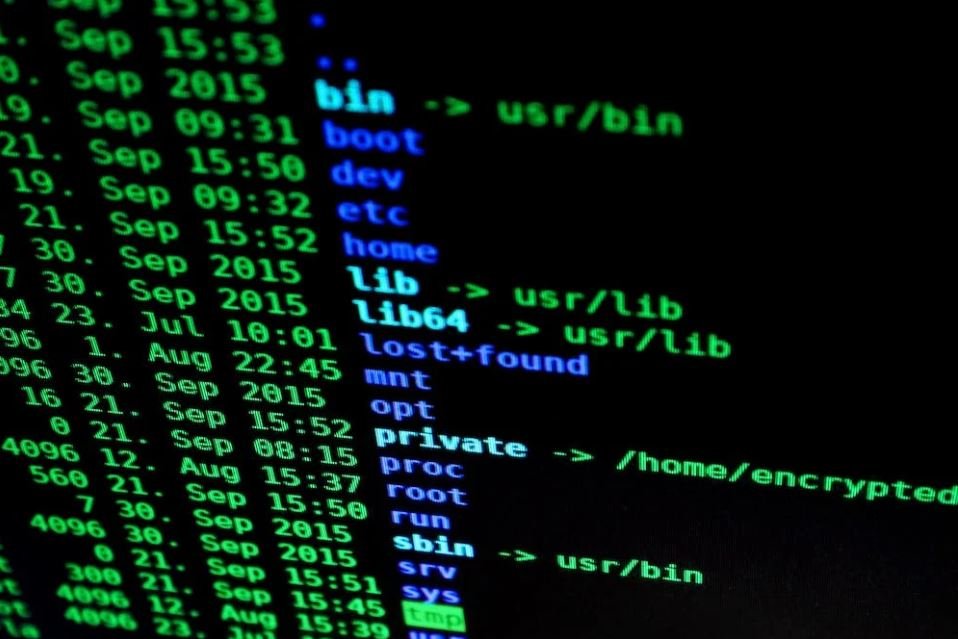Will AI Replace Video Game Developers?
In recent years, artificial intelligence (AI) has made significant advancements, leading to speculation about whether AI will eventually replace video game developers. As AI continues to evolve, its potential to autonomously generate game content and even create entire games has sparked both excitement and concerns within the gaming industry.
Key Takeaways:
- AI has the potential to automate certain aspects of video game development.
- AI-generated content can enhance gameplay experiences.
- Video game developers will continue to play a vital role in creativity and game design.
One area where AI has shown promise is in the generation of game content such as maps, levels, and quests. **With the help of AI algorithms**, developers can train models to create unique and dynamic game elements, thereby reducing the manual labor involved in content creation. For example, AI can analyze player preferences and generate personalized missions or challenges, providing players with a tailor-made experience. *This can lead to immersive and engaging gameplay that caters to individual preferences*.
The Role of AI in Game Design
The potential of AI in game design goes beyond content generation. AI algorithms can also assist in **balancing game mechanics**, ensuring fair and challenging gameplay experiences. By analyzing player behavior and feedback, AI can make real-time adjustments to the game’s difficulty level or mechanics to enhance player satisfaction. *This adaptive approach allows for more dynamic and responsive gameplay*.
Additionally, AI can be utilized to **improve non-playable characters (NPCs)** in video games. NPCs are often essential for creating immersive virtual worlds, and enhancing their behavior and interactions can greatly enhance player experiences. AI can enable NPCs to exhibit more realistic and human-like behavior, making the game world feel more alive. *This can result in more compelling narratives and immersive gameplay scenarios*.
AI’s Limitations and the Role of Video Game Developers
While AI has the potential to automate certain aspects of video game development, it is important to recognize its limitations. **AI lacks creativity and intuition**, which are key elements in game design. The human touch is crucial in crafting unique and innovative game concepts, narratives, and characters. *The creativity of video game developers cannot be replicated by AI alone*.
- Table 1: AI-generated vs. Human-designed game content
- Table 2: Pros and cons of using AI in video game development
- Table 3: Roles of AI and video game developers in game creation
The Future of AI in Video Game Development
While it is unlikely that AI will completely replace video game developers, its integration into the industry will undoubtedly continue to evolve. Video game developers will need to embrace AI as a tool to enhance their creative process rather than viewing it as a replacement. **Collaboration between AI and human developers** can lead to unprecedented advances in gameplay experiences and open the doors to new genres and possibilities. *The future lies in the synergy between humans and intelligent machines*.
As the field of AI progresses, video game developers will need to adapt and evolve alongside it. Embracing AI and understanding its strengths and limitations will be crucial to staying at the forefront of innovation in the gaming industry. **Ultimately, the success of AI in video game development relies on the ability of humans and machines to work together**. *The coexistence of human creativity and AI’s efficiency will shape the future of video game development*.
References
- Smith, A. (2020). AI in Video Games: How It’s Changing the Future of Gaming. Medium. Retrieved from [link]
- Jones, B. (2019). Using AI to balance video games. Unity. Retrieved from [link]
| Table 1: AI-generated vs. Human-designed game content | |
|---|---|
AI-Generated Content:
|
Human-Designed Content:
|
| Table 2: Pros and cons of using AI in video game development | |
|---|---|
Pros:
|
Cons:
|
| Table 3: Roles of AI and video game developers in game creation | |
|---|---|
AI:
|
Video Game Developers:
|

Common Misconceptions
Paragraph 1
One common misconception is that AI will replace video game developers entirely. While AI technology has made significant progress in recent years, it is unlikely to completely replace the creative and artistic aspects of game development.
- AI can assist developers in tasks such as level design and bug testing, but human creativity is still necessary for designing compelling stories, characters, and gameplay.
- Developers bring a unique perspective and personal touch to their games which enhances the overall experience for players.
- AI can be used as a tool to enhance productivity and efficiency in game development, but it cannot replicate the human intuition and innovative thinking.
Paragraph 2
Another misconception is that AI will take away job opportunities from video game developers. While AI may automate certain tasks, it also opens up new possibilities and creates new job roles within the industry.
- Developers can specialize in AI programming and utilize it to create more intelligent and immersive game experiences.
- AI can be used to generate procedural content, such as randomly generated maps or levels, which allows developers to focus on other aspects of game design.
- AI advancement requires skilled individuals to develop and train the AI algorithms, providing job opportunities in research and development.
Paragraph 3
Some people believe that AI will lead to a decline in game quality. However, AI has the potential to improve game development processes and enhance the overall quality of games.
- AI-powered algorithms can analyze player behavior and preferences, allowing developers to create more personalized and engaging gameplay experiences.
- Gameplay testing using AI can help identify and address potential issues, resulting in more polished and bug-free games.
- AI can facilitate better player engagement through features like intelligent NPCs that adapt to player actions and create dynamic interactions.
Paragraph 4
There is a misconception that AI will make game development too predictable and formulaic. However, AI is a tool that can be used to augment creativity, not stifle it.
- AI can generate procedural content that introduces new variations and surprises, making the game experience more dynamic and unpredictable.
- Developers can leverage AI technology to explore innovative game mechanics and ideas that may have been difficult to implement manually.
- AI can assist in rapid prototyping and playtesting, allowing developers to iterate and refine their game ideas more efficiently.
Paragraph 5
Lastly, some people have the misconception that AI will eliminate the need for game developers altogether. However, game development is a multidisciplinary field that goes beyond just coding and requires a combination of various skills.
- Designers are needed to create compelling visuals, immersive audio, and engaging narratives.
- Gameplay experts are required to ensure balanced and enjoyable player experiences.
- AI can enhance these roles by providing tools and assistance, but it cannot replace the expertise and creativity that developers bring to the table.

Introduction
Artificial Intelligence (AI) has been rapidly advancing and its potential to revolutionize various industries is becoming more evident. Video game development is no exception, as AI technology continues to evolve, raising the question of whether AI will eventually replace video game developers. This article examines the current state of AI in the gaming industry and explores the potential impacts on game developers.
AI in Video Game Development
Advances in AI have led to significant improvements in video game development, automating various aspects of the process. This table illustrates the capabilities of AI in game development:
| Aspect | AI Contribution |
|---|---|
| Character Design | AI algorithms can generate diverse and unique character designs based on specifications. |
| Level Design | AI algorithms can procedurally generate game levels, saving time and effort for developers. |
| Bug Fixing | AI-powered systems can detect and fix bugs autonomously, enhancing game quality. |
AI and Player Behavior
AI can have a profound impact on player behavior and interactions within video games. This table showcases AI’s influence on player experiences:
| Aspect | AI Contribution |
|---|---|
| Non-Player Characters (NPCs) | AI-driven NPCs can exhibit more realistic and dynamic behaviors, creating immersive gameplay. |
| Adaptive Difficulty | AI algorithms can adjust game difficulty dynamically based on player skill level, optimizing engagement. |
| Player Personalization | AI can analyze player preferences and adapt game content to provide personalized experiences. |
AI’s Impact on Game Production
The integration of AI into game production processes is altering the landscape of video game development. Consider the following examples:
| Aspect | AI Impact |
|---|---|
| Asset Creation | AI tools can automate the creation of in-game assets like textures, models, and animations. |
| Playtesting | AI playtesters can simulate player behavior and identify potential issues before release. |
| Localization | AI-powered translation systems facilitate faster and more accurate localization of games. |
Challenges and Limitations
Despite its potential, AI in video game development still faces challenges and limitations:
| Challenge/Limitation | Description |
|---|---|
| Creative Intuition | AI struggles to replicate the human creative process, limiting its ability to generate unique and innovative game ideas. |
| Complexity | Creating AI systems capable of handling complex in-game scenarios remains a significant challenge. |
| Unforeseen Consequences | AI can exhibit unpredictable behaviors, leading to unexpected and potentially negative outcomes within games. |
Current Industry Adoption
AI adoption in the video game industry is accelerating, with major players exploring AI-driven solutions:
| Company | AI Initiatives |
|---|---|
| Ubisoft | Utilizes AI algorithms to generate crowd movements and behavior within game worlds. |
| Electronic Arts (EA) | AI systems assist with dynamic difficulty adjustment and adaptive gameplay experiences. |
| Microsoft | Develops AI tools for game creation, aiding designers and reducing development time. |
The Human Touch
While AI enhances efficiency and offers new possibilities, the human element remains crucial:
| Aspect | Human Involvement |
|---|---|
| Design Vision | Humans provide the creative vision and direction that shape the game’s identity and narrative. |
| Emotional Connection | The human touch in storytelling and character development creates emotional connections with players. |
| Innovation | Human creativity drives innovation, pushing the boundaries of game design and experiences. |
Future Possibilities
The continued advancement of AI opens doors to exciting future possibilities:
| Possibility | Description |
|---|---|
| Procedural Storytelling | AIs that can generate compelling narratives on the fly, adapting to player choices and actions. |
| Real-time Learning | AIs that learn from player behavior, constantly improving game interactions and experiences. |
| Creative Collaboration | A synergy between AI and human creativity, leveraging the strengths of both to develop extraordinary games. |
Conclusion
AI’s role in video game development is undeniably expanding, transforming various aspects of the industry. While AI can automate certain tasks and enhance player experiences, the human touch remains vital for game design, storytelling, and innovation. The collaboration between AI and human creativity holds vast potential for future game development, where AI algorithms and human ingenuity can coexist to unlock unprecedented gaming experiences.
Will AI Replace Video Game Developers? – Frequently Asked Questions
What is AI? How does it relate to video game development?
Artificial Intelligence (AI) refers to the simulation of human intelligence in machines that are programmed to think and learn like humans. In the context of video game development, AI can be used to create intelligent and interactive characters and entities within a game.
Can AI completely replace video game developers?
No, AI cannot completely replace video game developers. While AI can automate certain aspects of development and enhance efficiency, human developers bring creativity, problem-solving skills, and the ability to understand player experiences, which cannot be replicated by AI.
What role can AI play in video game development?
AI can play a significant role in video game development by assisting developers in tasks such as generating procedural content, improving game performance, providing intelligent non-player character behavior, and enhancing player experience through adaptive gameplay.
Will AI impact the job market for video game developers?
AI may impact the job market for video game developers to some extent. While certain routine tasks may become automated, the demand for skilled video game developers who can leverage AI technology effectively is likely to increase, opening up new opportunities for employment.
Are there any limitations to AI in video game development?
Yes, there are limitations to AI in video game development. AI algorithms require extensive training and data to be effective, and there are challenges in producing truly creative and innovative content solely through AI. Human creativity and intuition still play a vital role in game development.
How are video game developers using AI currently?
Video game developers are already using AI in various ways, such as creating believable character behaviors, optimizing game mechanics, improving game visuals, and enhancing player experiences through personalized content suggestions and adaptive difficulty settings.
Is AI a threat to the future of video game developers?
AI is not a threat to the future of video game developers. While AI technology continues to advance, it is more likely to augment the skills and capabilities of developers rather than replacing them entirely. Collaboration between AI and human developers can lead to more innovative and immersive game experiences.
Will AI take away the creativity of video game development?
No, AI will not take away the creativity of video game development. Creativity is a uniquely human skill that involves ideation, storytelling, artistic design, and innovation. AI can assist in automating some aspects of game creation but cannot replicate the creative thinking and imagination of human developers.
Can AI develop games on its own without human intervention?
While AI has shown progress in generating simple game prototypes, creating complex and commercially successful games without human intervention still remains a challenge. The human touch is crucial in shaping unique game experiences, storytelling, and understanding player preferences.
How should video game developers adapt to AI advancements?
Video game developers should embrace AI advancements and learn how to effectively integrate AI into their workflows and processes. By developing skills in AI technologies, developers can leverage its potential to automate routine tasks, enhance gameplay experiences, and push the boundaries of game development.




